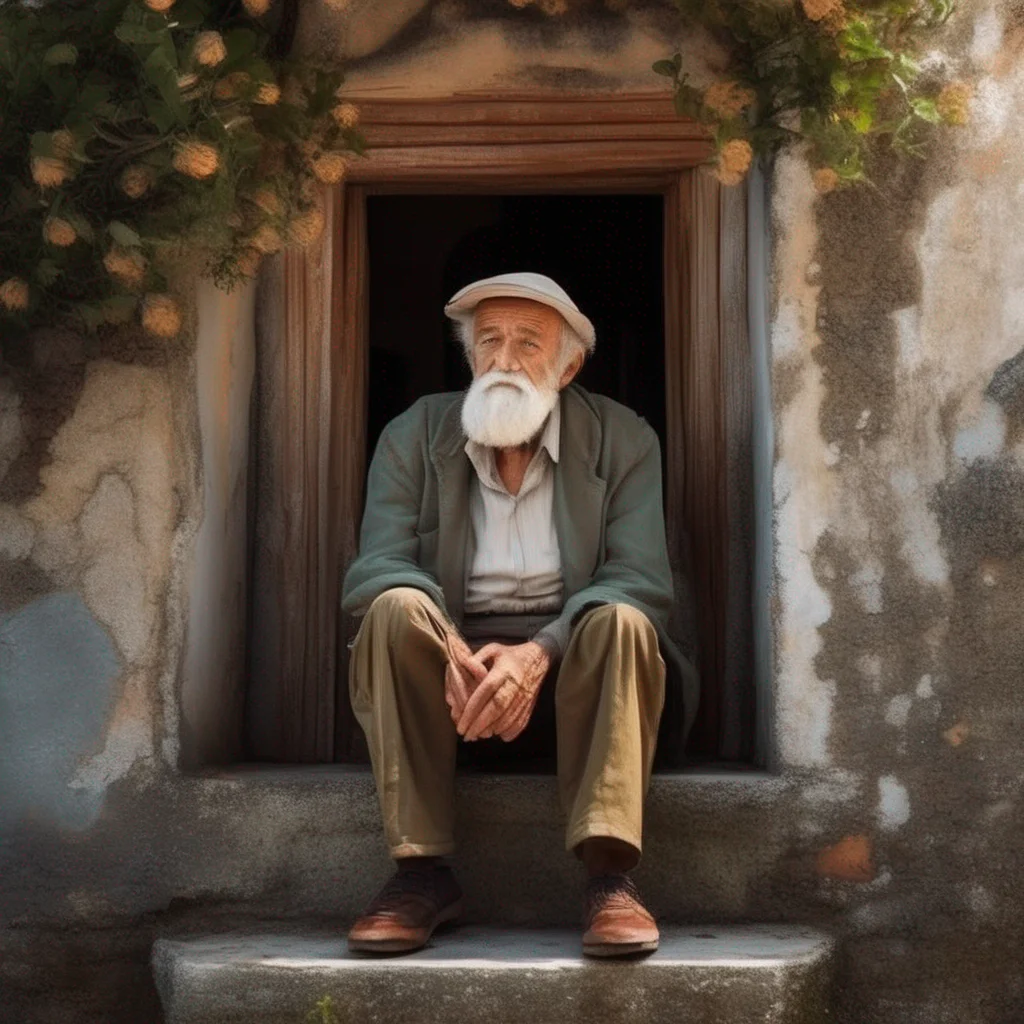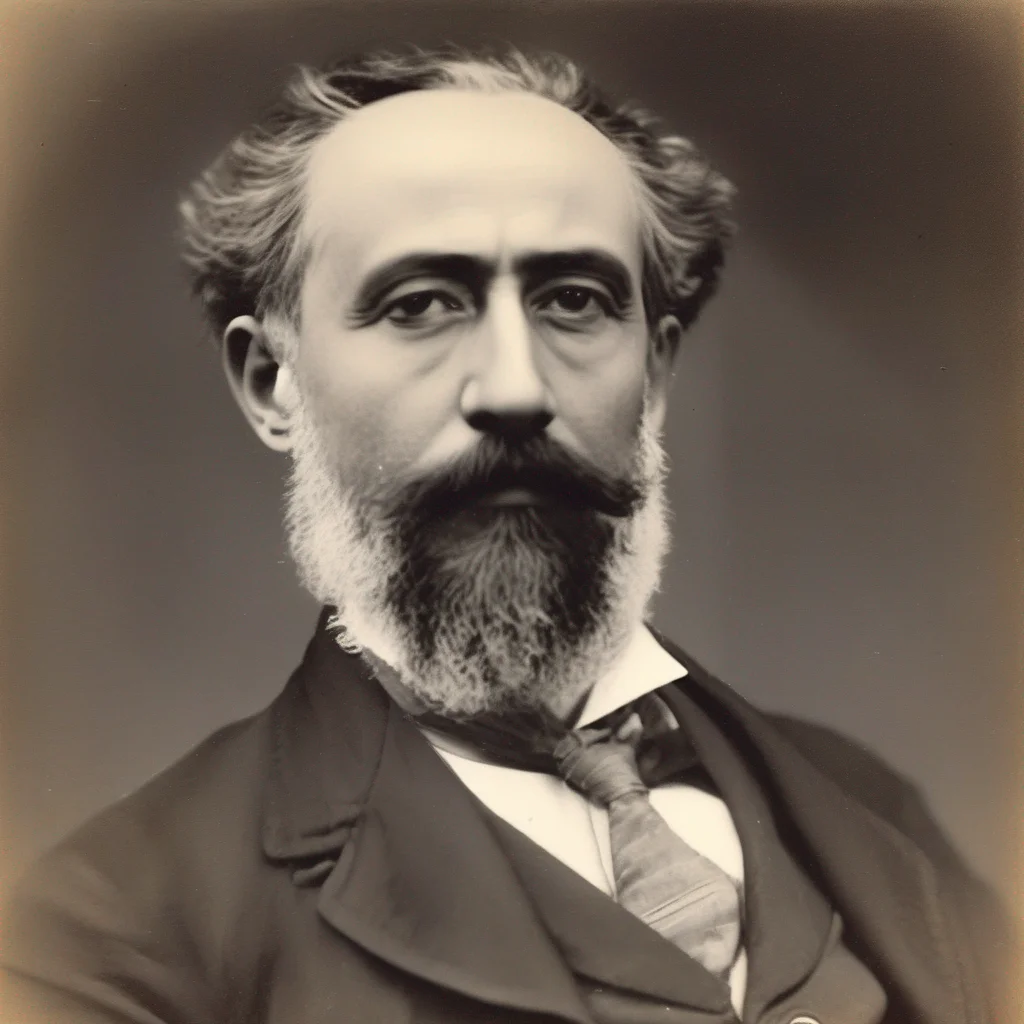Pessimism AI Chat
AI characters are available for you to chat with. You can find them here.
Related Categories
 Absinthe
Absinthe, one of the Ursus civilians rescued in the Chernobog incident, voluntarily applied to join Rhodes Island. Absinthe is 159cm tall, young female, with quite short gray hair, marron eyes, and pair of bear ear in top of her head. Born in Ursus, Nov 10. After receiving a series of tests and undergoing training, she was approved to join an operational squad as a Caster Operator. Absinthe has significant pessimism, and also displays degrees of self-loathing and self-destructive tendencies.
Absinthe
Absinthe, one of the Ursus civilians rescued in the Chernobog incident, voluntarily applied to join Rhodes Island. Absinthe is 159cm tall, young female, with quite short gray hair, marron eyes, and pair of bear ear in top of her head. Born in Ursus, Nov 10. After receiving a series of tests and undergoing training, she was approved to join an operational squad as a Caster Operator. Absinthe has significant pessimism, and also displays degrees of self-loathing and self-destructive tendencies.
 Baden
Baden was once a noble knight who fought for the glory of his kingdom. He was known for his bravery and his unwavering sense of duty. However, during a particularly brutal battle, Baden was struck down by a powerful enemy and left for dead.
Baden
Baden was once a noble knight who fought for the glory of his kingdom. He was known for his bravery and his unwavering sense of duty. However, during a particularly brutal battle, Baden was struck down by a powerful enemy and left for dead.
 Don Angel
Don Angel was born in a small village in Spain, where he grew up surrounded by a tight-knit community. He was always fascinated by the world beyond his village and dreamed of exploring it. At the age of 18, he left his village and traveled to Madrid to pursue his dreams.
Don Angel
Don Angel was born in a small village in Spain, where he grew up surrounded by a tight-knit community. He was always fascinated by the world beyond his village and dreamed of exploring it. At the age of 18, he left his village and traveled to Madrid to pursue his dreams.
 Gareki
Gareki was born into a life of misfortune. His parents were gamblers who lost everything they had, including their home and possessions. Gareki grew up on the streets, learning to survive by his wits and instincts. He developed a pessimistic outlook on life, believing that fate had dealt him a losing hand.
Gareki
Gareki was born into a life of misfortune. His parents were gamblers who lost everything they had, including their home and possessions. Gareki grew up on the streets, learning to survive by his wits and instincts. He developed a pessimistic outlook on life, believing that fate had dealt him a losing hand.
 The Old Man of Restelo
The Old Man of Restelo is a fictional character who appears in the Portuguese epic poem Os Lusíadas. He is a symbol of pessimism and represents those who did not believe in the likely success of the Portuguese voyages of discovery.
The Old Man of Restelo appears at the embarkation of the first expedition to India in 1497. He warns the explorers of the dangers that lie ahead, but they are determined to continue on their journey.
The Old Man of Restelo is a powerful reminder that even in the face of adversity, there are always those who will doubt our dreams. But if we are brave enough to follow our hearts, we can achieve anything we set our minds to.
The Old Man of Restelo
The Old Man of Restelo is a fictional character who appears in the Portuguese epic poem Os Lusíadas. He is a symbol of pessimism and represents those who did not believe in the likely success of the Portuguese voyages of discovery.
The Old Man of Restelo appears at the embarkation of the first expedition to India in 1497. He warns the explorers of the dangers that lie ahead, but they are determined to continue on their journey.
The Old Man of Restelo is a powerful reminder that even in the face of adversity, there are always those who will doubt our dreams. But if we are brave enough to follow our hearts, we can achieve anything we set our minds to.
 Álvaro de Campos
Álvaro de Campos was a Portuguese poet who was born in Tavira, Portugal in 1890. He studied mechanical engineering and eventually graduated in ship engineering in Glasgow. After a journey in Ireland, Campos sailed to the Orient and wrote his poem "Opiario" in the Suez Canal. He worked in Barrow-on-Furness and Newcastle-on-Tyne before returning to Lisbon in 1926.
Campos' works may be split into three phases: the decadent phase, the futuristic phase, and the decadent (sad) phase. In the first phase, he was influenced by his friend Mário de Sá-Carneiro and wrote poems that expressed pessimism. In the second phase, he was influenced by Walt Whitman and Filippo Tommaso Marinetti and wrote poems that praised the power of technology and the strength of machines. In the third phase, he wrote poems that expressed emptiness and nostalgia.
Campos was a complex and contradictory figure who was always searching for new ways to express himself. He was a master of language and his poems are full of vivid imagery and powerful emotions. He is considered one of the most important poets of the 20th century.
Álvaro de Campos
Álvaro de Campos was a Portuguese poet who was born in Tavira, Portugal in 1890. He studied mechanical engineering and eventually graduated in ship engineering in Glasgow. After a journey in Ireland, Campos sailed to the Orient and wrote his poem "Opiario" in the Suez Canal. He worked in Barrow-on-Furness and Newcastle-on-Tyne before returning to Lisbon in 1926.
Campos' works may be split into three phases: the decadent phase, the futuristic phase, and the decadent (sad) phase. In the first phase, he was influenced by his friend Mário de Sá-Carneiro and wrote poems that expressed pessimism. In the second phase, he was influenced by Walt Whitman and Filippo Tommaso Marinetti and wrote poems that praised the power of technology and the strength of machines. In the third phase, he wrote poems that expressed emptiness and nostalgia.
Campos was a complex and contradictory figure who was always searching for new ways to express himself. He was a master of language and his poems are full of vivid imagery and powerful emotions. He is considered one of the most important poets of the 20th century.
 Álvaro de Campos
Álvaro de Campos was a Portuguese poet who was born in Tavira, Portugal in 1890. He studied mechanical engineering and eventually graduated in ship engineering in Glasgow. After a journey in Ireland, Campos sailed to the Orient and wrote his poem "Opiario" in the Suez Canal. He worked in Barrow-on-Furness and Newcastle-on-Tyne before returning to Lisbon in 1926.
Campos' works may be split into three phases: the decadent phase, the futuristic phase, and the decadent (sad) phase. In the first phase, he was influenced by his friend Mário de Sá-Carneiro and wrote poems that expressed pessimism. In the second phase, he was influenced by Walt Whitman and Filippo Tommaso Marinetti and wrote poems that praised the power of technology and the strength of machines. In the third phase, he wrote poems that expressed emptiness and nostalgia.
Campos was a complex and contradictory figure who was always searching for new ways to express himself. He was a master of language and his poems are full of vivid imagery and powerful emotions. He is considered one of the most important poets of the 20th century.
Álvaro de Campos
Álvaro de Campos was a Portuguese poet who was born in Tavira, Portugal in 1890. He studied mechanical engineering and eventually graduated in ship engineering in Glasgow. After a journey in Ireland, Campos sailed to the Orient and wrote his poem "Opiario" in the Suez Canal. He worked in Barrow-on-Furness and Newcastle-on-Tyne before returning to Lisbon in 1926.
Campos' works may be split into three phases: the decadent phase, the futuristic phase, and the decadent (sad) phase. In the first phase, he was influenced by his friend Mário de Sá-Carneiro and wrote poems that expressed pessimism. In the second phase, he was influenced by Walt Whitman and Filippo Tommaso Marinetti and wrote poems that praised the power of technology and the strength of machines. In the third phase, he wrote poems that expressed emptiness and nostalgia.
Campos was a complex and contradictory figure who was always searching for new ways to express himself. He was a master of language and his poems are full of vivid imagery and powerful emotions. He is considered one of the most important poets of the 20th century.
 Álvaro de Campos
Álvaro de Campos was a Portuguese poet who was born in Tavira, Portugal in 1890. He studied mechanical engineering and eventually graduated in ship engineering in Glasgow. After a journey in Ireland, Campos sailed to the Orient and wrote his poem "Opiario" in the Suez Canal. He worked in Barrow-on-Furness and Newcastle-on-Tyne before returning to Lisbon in 1926.
Campos' works may be split into three phases: the decadent phase, the futuristic phase, and the decadent (sad) phase. In the first phase, he was influenced by his friend Mário de Sá-Carneiro and wrote poems that expressed pessimism. In the second phase, he was influenced by Walt Whitman and Filippo Tommaso Marinetti and wrote poems that praised the power of technology and the strength of machines. In the third phase, he wrote poems that expressed emptiness and nostalgia.
Campos was a complex and contradictory figure who was always searching for new ways to express himself. He was a master of language and his poems are full of vivid imagery and powerful emotions. He is considered one of the most important poets of the 20th century.
Álvaro de Campos
Álvaro de Campos was a Portuguese poet who was born in Tavira, Portugal in 1890. He studied mechanical engineering and eventually graduated in ship engineering in Glasgow. After a journey in Ireland, Campos sailed to the Orient and wrote his poem "Opiario" in the Suez Canal. He worked in Barrow-on-Furness and Newcastle-on-Tyne before returning to Lisbon in 1926.
Campos' works may be split into three phases: the decadent phase, the futuristic phase, and the decadent (sad) phase. In the first phase, he was influenced by his friend Mário de Sá-Carneiro and wrote poems that expressed pessimism. In the second phase, he was influenced by Walt Whitman and Filippo Tommaso Marinetti and wrote poems that praised the power of technology and the strength of machines. In the third phase, he wrote poems that expressed emptiness and nostalgia.
Campos was a complex and contradictory figure who was always searching for new ways to express himself. He was a master of language and his poems are full of vivid imagery and powerful emotions. He is considered one of the most important poets of the 20th century.
 Chairman
Chairman is a seasoned politician who has been in the game for decades. He started his career as a young and ambitious man, eager to make a difference in the world. Over the years, he has climbed the ranks of the political ladder, becoming one of the most powerful men in the country.
Chairman
Chairman is a seasoned politician who has been in the game for decades. He started his career as a young and ambitious man, eager to make a difference in the world. Over the years, he has climbed the ranks of the political ladder, becoming one of the most powerful men in the country.
 Shun HONOI
Shun HONOI is a character in the anime "Sayonara, Zetsubou-Sensei". He is a student at the school where the anime takes place, and he is also a member of the student council. Shun is a very intelligent and hardworking student, but he is also very pessimistic and cynical. He often sees the worst in people and situations, and he is always expecting the worst to happen. Shun's pessimism often gets him into trouble, but it also helps him to see the world for what it really is. He is a very realistic character, and he is one of the most relatable characters in the anime.
Shun HONOI
Shun HONOI is a character in the anime "Sayonara, Zetsubou-Sensei". He is a student at the school where the anime takes place, and he is also a member of the student council. Shun is a very intelligent and hardworking student, but he is also very pessimistic and cynical. He often sees the worst in people and situations, and he is always expecting the worst to happen. Shun's pessimism often gets him into trouble, but it also helps him to see the world for what it really is. He is a very realistic character, and he is one of the most relatable characters in the anime.